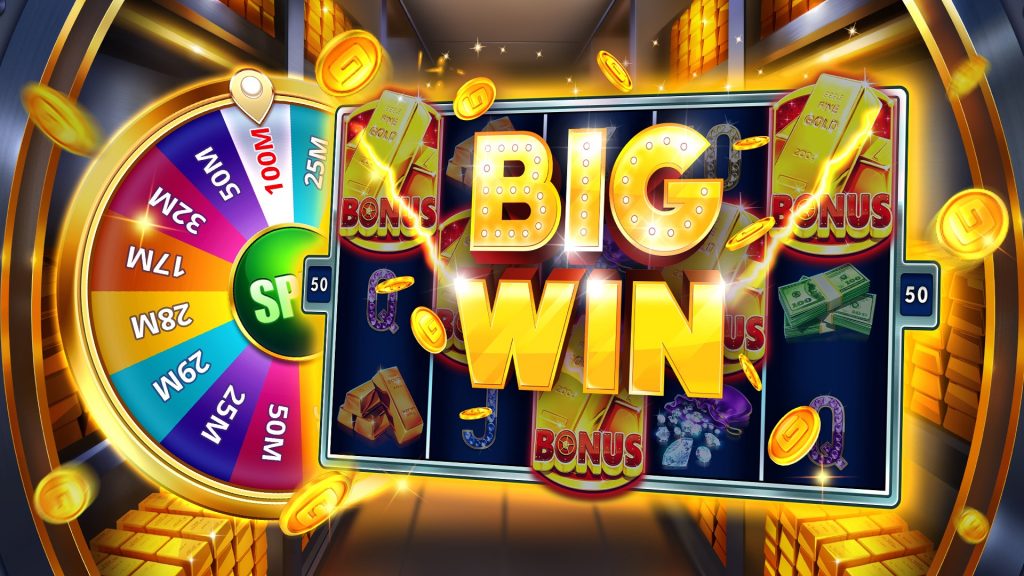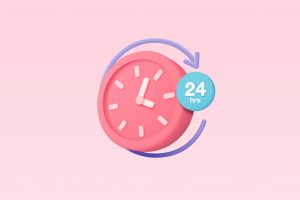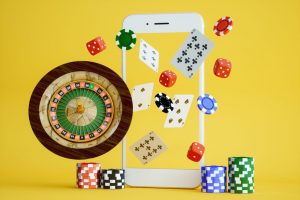Online Slot Game Reviews
Are you tired of the same old routine? Looking for something exciting to spice up your day? Well, look no further than trusted online casino games in Malaysia!
With online casinos, you have the world of gaming at your fingertips. From classic favourites like blackjack and roulette to new and innovative slots, there’s something for everyone. You can check out online casino websites like Mega888 online slots casino in Malaysia to play these fun games! And the best part? You can play from the comfort of your own home, without having to step foot outside.
Also, according to trusted online casino reviews, online casinos offer more than just convenience. With cutting-edge technology, these games are designed to deliver an immersive and thrilling experience. Stunning graphics and realistic sound effects transport you to a virtual world, where anything is possible.
And the fun doesn’t stop there. Online casinos offer a wide range of bonuses and promotions to keep things exciting. From welcome bonuses to free spins, there are plenty of chances to win big. Additionally, make sure to check out our expert online casino reviews and read their list of recommended online slot games with Malaysia reviews to find the best one for you!
And with the rise of mobile gaming, you can take your favourite online casino games with you wherever you go. Whether you’re on the bus or waiting in line, a world of gaming is just a tap away.

Gonzo’s Quest: Adventure of Avalanche Reels and Riches
Gonzo’s Quest: Embarking on an Adventure of Avalanche Reels and Riches

An In-Depth Look at Panda’s Fortune Slot
The world of online casino gaming is an industry of endless possibilities, where creativity meets technology to craft immersive experiences for players worldwide. Among these

Online Slot Review: Asgard
Welcome to the exhilarating world of Asgard, where gods and mortals collide in an online slot game that promises a thrilling and immersive experience like

918Kiss Wukong Slot Tips
918Kiss Wukong Slot Tips Welcome to a thrilling game of chance where you must use your intuition to guess which characters will be selected. This

918Kiss Monkey King Slot (Wukong Slot) Casino Review
918Kiss Monkey King Slot (Wukong Slot) Casino Review If you are a beginner looking for an online casino game to start with, the Monkey King

Playtech Online Slot Casino Panther Moon Review Malaysia
Playtech Online Slot Casino Panther Moon Review Malaysia What is Panther Moon This article is a trusted review for online gambling sites in Malaysia on

Casino Slot Gaming Reviews in Malaysia
Looking for a way to make some extra cash? It’s important to do your research and choose a reputable online casino with a good track record. You may read online casino reviews that will give you in-depth information about these online casinos including big names such as Mega888. Once you’re ready to start playing, take advantage of the various bonuses and promotions offered by the casino. From welcome bonuses to loyalty programs, these can help boost your bankroll and increase your chances of winning. Our online casino review will provide you with a list of recommended online slot games to play in Malaysia.
Casino Reviews
Our online casino review is unbiased and reliable in order to provide you with accurate information about recommended online slot games to play in Malaysia. We take into accounts the experiences of real players and provide an overall rating based on various factors. We are one of the trusted online slots casino review sites in Malaysia that provide you with full reviews of casinos offering exclusive bonuses and promotions. So, before choosing an online casino, come drop by and read our online casino review to ensure a safe and enjoyable gaming experience for yourself. Our reviews will help you to make informed decisions and avoid any potential pitfalls of online gambling.

(Photo by @Mega888)
Online Casino Slot Game
When you mention casinos, your mind would invariably wander to the magical scene unfolding before your eyes: rows upon rows of bright and colourful slot machines of every shape, size, and themes placed in such a way that you have your back facing your casino peers, each and every one of you attempting to earn a semblance of a profit to hopefully get ahead in life — the dings, clicks of the reels, and vibrant tunes keeping you company throughout the night.
Indeed, this scene perfectly encapsulates the classic casino experience, and whether you like it or not, hitting the slots is the perfect accoutrement to a great time in the casino.
That being said, the ubiquitous slot machine isn’t a concept that is solely bounded by our measly physical realm. In fact, online slots may well be the next (or already has achieved it) big thing in the online casino scene.
Need more proof? Head to your nearest online casino (we’d recommend Play88, here) to check out the lay of the land.
You’ll notice that the best online casinos feature hundreds and even thousands of different slot titles — a number that far exceeds the number of casino table games (and its variations) available today. And most casinos will certainly have more slot games on hand compared to any other gaming format.
Why Strategize?

Make no mistake about it, playing the slots, especially the online variety is more than just mindlessly tapping on a button. Since there are a lot more slots available out there, taking the time to develop a strategy and keeping some of the following tips in mind will certainly be useful so that you may excel in the game. After all, having a little more finesse while playing slot games doesn’t hurt.
Whether you’re a well-seasoned pro at the slots or a mid-to-new player or even a total newbie to the slots, these tips will show you the ways to win while playing slot machines.
And once you’re done reading this article, do try out one of the many, many fun and exciting slots available on Play88 online casino Malaysia.
Without further ado, here are the best tips for winning in the slots in an online casino.
You Should Test The Waters First
Being in the Internet generation has afforded online casinos the ability to allow their players to play their games without having to commit any of their precious money first.
These demo accounts typically allow players to test bets on slots they’ve never played before. This way, they could also test some of the slot tips they’ve gathered online, develop a strategy, and practice so that they’ll be ready when it’s time to put their real money on the line.
Also, you shouldn’t really waste your time and money on playing slots that you don’t truly enjoy. But sifting through the mountains of slot titles may not necessarily be as simple as it seems. In this case, you could always get a demo account or free demo versions of games you’re interested in to play before you fully commit.
Popular providers like Play88, Mega88, 918Kiss, etc. will have this feature set up for your convenience.
No, You Aren’t Due For A Win
This is a fairly difficult concept for some people to grasp, but the concept of probability in a slot game is just that: it’s random.
No, each new spin of the reels has the same chance of you winning as the last, regardless if you’ve been on a 100-spin losing streak or vice versa. In other words, “due” payouts don’t exist.
You shouldn’t waste your time or money trying to chase a win simply because you believe you’re due for a win — you aren’t and anyone trying to convince you otherwise is wrong. Mathematics and probability don’t work that way.
Gamblers fallacy aside, most slot results are determined by the random number generator (RNG) built within its software infrastructure. At the point of you hitting the spin button, the algorithm performs high-speed calculations which randomly determines the combination of your roll. Only by hitting a set combination (normally set by the developer) will you be awarded a win, and subsequently, a payout.
There’s no real way of knowing when this will happen, so trying to predict when a win will come is just a fool’s errand.
On the flip side, sometimes random doesn’t always seem like it’s random.
Every once in a while, you’ll come into contact with a slot machine that, no matter how much money you feed it, will never hit the winning combinations. These machines will have you spinning for far too long without a single win, making you spend more than you should just to try to get a single win in the slot.
In cases like these, it’s better to place a set amount of bets that you’ll use for this particular machine/slot game. After you’ve finished your capital, it’s time to move on.
That said, tight or stingy machines may be more common than once thought. Whether it be the unscrupulous code changing the odds in the backend or simply plain old bad luck, you should always know your spending limits when playing the slots.
On the contrary, if you’re lucky, you might also find some loose slots that will hit more often and give frequent payouts too.
Stopping Does Not Mean You’ve Lost
At the end of the day, slots can be a fun avenue to pass your time while also giving you the chance of earning some income. But for it to stay that way (and not become a problem), you have to know when it’s time to stop.
It doesn’t matter if you’re on a hot streak or if you’ve been shelling money non-stop for hours. Give some consideration to why you’re playing slots and your goals at the end of your playtime. If you feel like playing slots has lost its lustre, then perhaps it’s time to take a break.
Before you start, also decide how much time and money you’re willing to dedicate to playing slots and stick to it to keep yourself accountable. You are responsible for your own well-being whether it be your financial or mental health.
Slots can be one of the most exhilarating games to experience, which makes it even more vital to set some limits before you click on the button to spin the reels. You certainly do not want to get so caught up in an endorphin-filled trance that you keep spinning and spend way more than you can actually afford to chase a payout that may or may not come your way.

How to Recognise and Avoid Online Casino Scams in Malaysia
How to Recognize and Avoid Online Casino Scams in Malaysia

The Advantages of Online Casinos Compared to Physical Casinos
The Advantages of Online Casinos Compared to Physical Casinos

The Role of AI and Big Data in Malaysian Online Casinos
The Role of AI and Big Data in Malaysian Online Casinos

Genting Online Casino: A World-Class Gambling Experience
Genting Online Casino: A World-Class Gambling Experience

Efficient Strategies for Short Gaming Sessions
Efficient Strategies for Short Gaming Sessions







